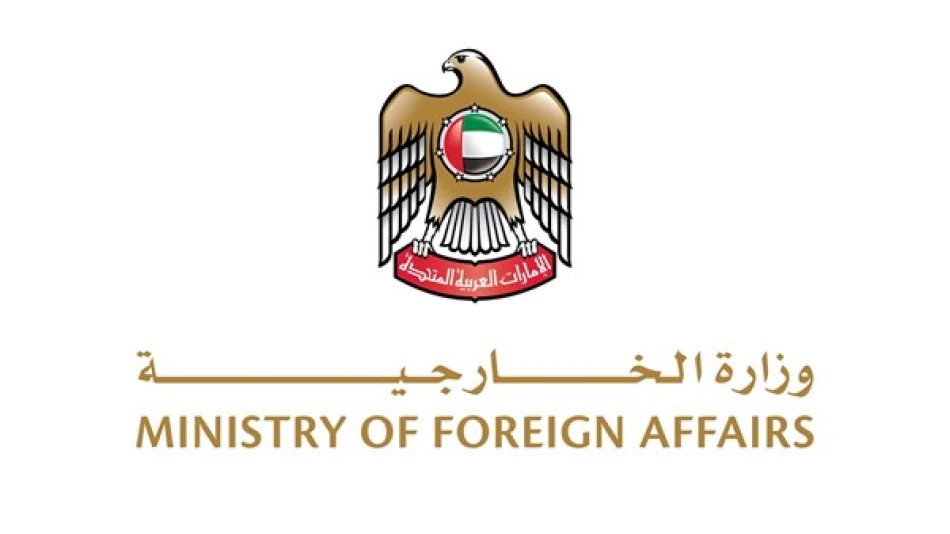
Ministry Enhances 'To Whom It May Concern' Certificate Issuance and Verification Service
UAE Eliminates Diplomatic Red Tape with Digital Certificate Service for Citizens Abroad
The UAE Ministry of Foreign Affairs has launched a fully digital service allowing citizens overseas to obtain and authenticate "To Whom It May Concern" certificates without visiting embassies or consulates. This three-step online process represents a significant leap in diplomatic efficiency and signals the UAE's commitment to becoming a global leader in government digitalization, particularly benefiting the country's large expatriate workforce and international student population.
Streamlining Bureaucracy in Three Digital Steps
The new service eliminates what has traditionally been one of the most time-consuming aspects of living abroad as an Emirati citizen. Previously, obtaining authenticated certificates for medical treatment, education, or other official purposes required physical visits to diplomatic missions, often involving lengthy queues and multiple trips.
Omar Obaid Al Hassan Al Shamsi, Undersecretary of the Ministry of Foreign Affairs, emphasized that the digital transformation consolidates multiple procedural pathways into a single, streamlined process. Citizens can now access the service through the ministry's website or mobile application, with 24/7 technical support available.
Beyond Convenience: Strategic Digital Governance
This initiative forms part of the UAE's second phase of the "Zero Government Bureaucracy" program, a comprehensive effort to eliminate administrative friction across all government services. The timing is particularly strategic as the UAE positions itself as a regional hub for business, education, and healthcare—sectors where quick document authentication can make or break critical opportunities.
Global Context: UAE's Digital Diplomacy Advantage
The UAE's move places it ahead of many developed nations in diplomatic service delivery. While countries like Estonia and Singapore have pioneered digital government services domestically, few have extended comprehensive digital authentication to their overseas diplomatic operations. The United States and European nations still largely rely on traditional embassy-based document services, creating potential competitive advantages for UAE citizens in international business and academic settings.
Economic Implications for Expatriate Communities
For the UAE's substantial overseas population—including business professionals, students, and medical patients—this service represents tangible economic value. Time savings translate directly into reduced travel costs, fewer missed work days, and faster processing of critical applications for education, employment, or medical treatment abroad.
Setting New Standards for Diplomatic Innovation
This digital transformation reflects broader trends in how modern governments must adapt to serve increasingly mobile populations. As remote work and international mobility become standard, traditional diplomatic services risk becoming bottlenecks rather than facilitators of citizen welfare.
The UAE's approach suggests a future where diplomatic missions focus more on complex consular cases and relationship-building, while routine administrative tasks become fully automated. This model could influence how other Gulf states and emerging economies structure their overseas citizen services, potentially creating pressure for similar innovations across the region.
The success of this initiative will likely be measured not just in user satisfaction, but in its ability to maintain security standards while delivering speed—a balance that will determine whether other nations follow the UAE's digital diplomacy blueprint.
Most Viewed News

 Layla Al Mansoori
Layla Al Mansoori






